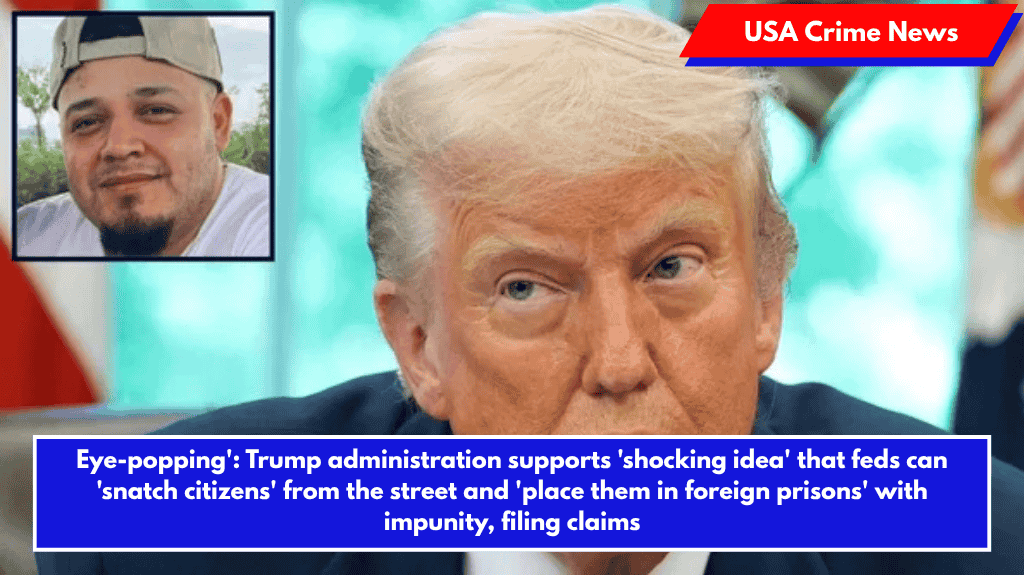Attorneys for Kilmar Abrego Garcia chastised the Trump administration for advancing an alarming proposal in its attempt to end the lawsuit challenging the protected resident’s “illegal” removal from the United States to a terrorist prison in El Salvador without due process.
On Monday, the attorneys filed a 26-page response to the government’s motion to dismiss in Maryland federal court, after the Justice Department reiterated last week that federal courts have no role or authority in the case’s resolution.
“The Government asks this Court to accept a shocking proposition: that federal officers may snatch residents of this country and deposit them in foreign prisons in admitted violation of federal law, while no court in the United States has jurisdiction to do anything about it,” according to the motion.
“This Court, the Fourth Circuit, and the Supreme Court all rejected the jurisdictional gambit. All three courts unanimously affirmed a preliminary injunction directing the government to facilitate the return of Kilmar Armando Abrego Garcia from El Salvador to the United States.”
The filing claims the Trump administration has been “unfazed” by its repeated court losses, and it also implies that the DOJ was unprepared for U.S. District Judge Paula Xinis to deny its day-of request for a 30-day extension on last week’s filing.
After Xinis ordered the DOJ to adhere to the original deadline, the government filed a “nearly verbatim” recitation of “the same jurisdictional arguments” previously rejected by the district court, circuit court, and Supreme Court, according to Abrego Garcia’s attorneys.
“The Government’s position that courts cannot order it to aid the return of U.S. residents it unlawfully removed to foreign cells was ‘eye-popping’ before,” according to the filing. “Repetition does not make it less true. Jurisdiction is not a game of ‘best two out of three.’ Once decided, it remains so unless the facts or the law change. “Neither have.”
In last week’s motion to dismiss, the Trump administration claimed that Abrego Garcia’s case “must” be dismissed for lack of subject matter jurisdiction because, despite being removed from the United States as a result of a “administrative error,” courts lacked the authority to compensate him for his injuries.
The administration’s jurisdiction argument was directed at Abrego Garcia’s threshold habeas claim, which is a challenge to the legality of an individual’s confinement — or, in this case, removal — that must be filed in the jurisdiction where the individual is being held.
According to the DOJ, Abrego Garcia is being held in El Salvador’s custody, and the US “cannot exercise its will over a foreign sovereign.”
Abrego Garcia responded by effectively arguing that he “remains in U.S. custody” — at least constructively — “because he is detained in El Salvador at the behest of the US Government.”
In the context of the federal habeas statute, constructive custody refers to prisoners who are not in “actual, physical custody” but are held by someone else “under or by color of the authority of the United States.”
A petitioner who is free on parole but still subject to parole restraints is an example of constructive custody, as is an individual “imprisoned by a private party at the behest of the U.S. Government.”
Xinis, a Barack Obama appointee, is unlikely to credit the motion because she rejected the Trump administration’s jurisdictional argument last month, writing that it “fails as a matter of law” and emphasizing that government defendants “can and do return wrongfully removed migrants as a matter of course.”
The judge previously chastised the administration for failing to comply with court orders to produce information about Abrego Garcia’s detention and the steps being taken to facilitate his return, as well as for allegedly “mischaracterizing” the Supreme Court’s April order.
Abrego Garcia’s case has sparked international interest, quickly becoming one of the most high-profile and contentious lawsuits filed against Trump and his administration since he retook office in January.
The government has admitted in numerous filings that his removal to El Salvador was a “administrative error,” but it continues to insist that he is a member of MS-13 and has refused to comply with multiple court orders requiring his return to the country.
Notably, the government has provided little, if any, evidence that Abrego Garcia was a gang member. He has no criminal record in the United States or El Salvador, and he has submitted sworn statements claiming he fled El Salvador due to gang violence.












